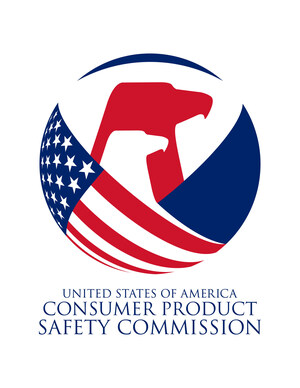WASHINGTON, July 7, 2021 /PRNewswire/ -- https://www.cpsc.gov/Newsroom/News-Releases/2021/CPSC-Sues-thyssenkrupp-Access-Corp-Over-Deadly-Gap-Hazard-in-Residential-Elevators
To prevent children from suffering further serious injury or death, the U.S. Consumer Product Safety Commission (CPSC) filed an administrative complaint against thyssenkrupp Access Corp. (thyssenkrupp), alleging that thyssenkrupp's residential elevators contain defects that present a substantial product hazard. CPSC alleges that certain models of thyssenkrupp residential elevators manufactured and distributed through 2012 were installed with a hazardous gap between the exterior hoistway door and the interior elevator car door or gate. The models include, but are not limited to: Chaparral, Destiny, LEV, LEV II, LEV II Builder, Rise, Volant, Windsor, Independence, and Flexi-Lift models. thyssenkrupp has refused to conduct a voluntary recall of the hazardous residential elevators.
Children can become entrapped when a residential elevator is installed with excessive space between the exterior hoistway door and the interior elevator car door or gate, and suffer serious injuries or death when the elevator is called to another floor. There have been three incidents involving thyssenkrupp residential elevators, including a 2-year-old child who died in 2017, and a 3-year-old child left permanently disabled in 2010. Additionally, in 2019, a 4-year-old boy was hospitalized after a crush injury.
"These injuries and deaths are ghastly," said Acting Chairman Robert Adler. "The gaps in residential elevators are truly a hidden hazard for homeowners, and for anyone who is visiting or renting a home with an elevator."
The complaint charges that the residential elevators are defective for a variety of reasons, including defects in thyssenkrupp's installation materials and defects in the elevators' design.
At least 16,800 residential elevators were manufactured and distributed by ThyssenKrupp Access Manufacturing, LLC, thyssenkrupp Access Corp., Access Industries, Inc., or National Wheel-O-Vator Company, Inc., through 2012. The residential elevators were distributed by third-party builders, residential elevator dealers and installers for $15,000 to $25,000 for a two-landing installation.
The Commission voted 3-1 to approve the complaint, which seeks, among other things, that thyssenkrupp be ordered to notify the public of the defect and offer consumers a remedy that includes a free inspection, and if necessary, installation of safety devices, such as space guards, at no cost to consumers.
CPSC urges consumers to disable or block children's access to the thyssenkrupp residential elevators to prevent a potential deadly incident.
About the U.S. CPSC
The U.S. Consumer Product Safety Commission (CPSC) is charged with protecting the public from unreasonable risks of injury or death associated with the use of thousands of types of consumer products. Deaths, injuries, and property damage from consumer product incidents cost the nation more than $1 trillion annually. CPSC's work to ensure the safety of consumer products has contributed to a decline in the rate of deaths and injuries associated with consumer products over the past 40 years.
Federal law bars any person from selling products subject to a publicly announced voluntary recall by a manufacturer or a mandatory recall ordered by the Commission.
For lifesaving information:
- Visit CPSC.gov.
- Sign up to receive our e-mail alerts.
- Follow us on Facebook, Instagram @USCPSC and Twitter @USCPSC.
- Report a dangerous product or a product-related injury on www.SaferProducts.gov.
- Call CPSC's Hotline at 800-638-2772 (TTY 301-595-7054).
- Contact a media specialist.
Release Number: 21-161
SOURCE U.S. Consumer Product Safety Commission

Related Links
WANT YOUR COMPANY'S NEWS FEATURED ON PRNEWSWIRE.COM?
Newsrooms &
Influencers
Digital Media
Outlets
Journalists
Opted In




Share this article